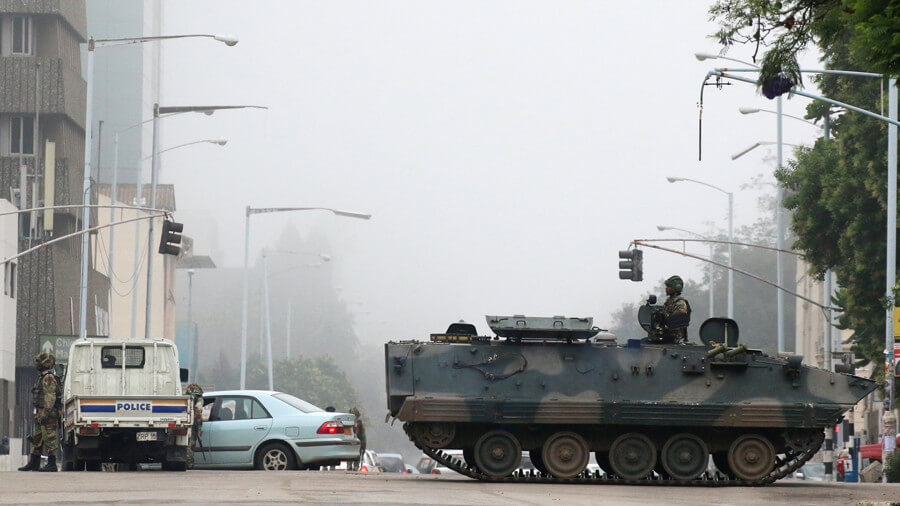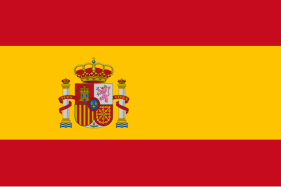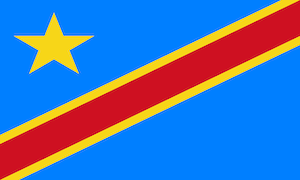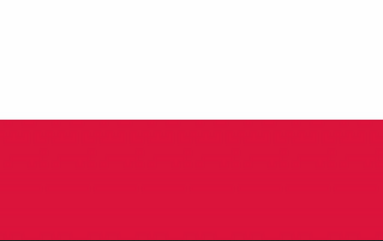November 17, 2017

Photo: Ruling Party tensions reached a peak this week in Zimbabwe, when the military forced Robert Mugabe off the stage after 37 years in power – Photograph: Philimon Bulawayo_Reuters

Martha O’ Donavan, the American woman who’s arrest CANVAS reported on last week, has been granted bail last Friday. O’ Donavan’s, who is charged with subversion over allegedly insulting President Robert Mugabe on Twitter, her bail was set on $1,000. According to the Washington Post, she did not speak to reporters as she emerged from a prison in the capital, Harare, and left in a U.S. Embassy vehicle. As are the conditions attached to her bail, O’Donovan had to hand over her passport to the Zimbabwean authorities, and has to report to the Criminal Investigation Department (CID) on Monday and Friday. On Tuesday, Human Rights Watch releases a small report on the most recent clamp down on media in Zimbabwe, calling on the government to create an independent body to impartially investigate police abuses against journalists.
Also late last week, AfricanArguments.org release an opinion-piece by Blessing Miles Tendi, on the role the British authorities might have played in the lay-off of former vice-President Emmerson Mnangagwa. “With Mnangagwa’s dismissal,” Tendi argues, “the UK’s alleged strategy [to support Mnangagwa as Zimbabwe’s next president] has not only clearly failed, but its perceived backing for Mnangagwa prompted outrage among many Zimbabweans, further weakening the UK’s image in the country. Moreover, its support for Mnangagwa may have even contributed to his downfall.” Tendi moves on to argue that, besides the fact that UK-meddling in the presidential succession process is a known stick used by Mugabe, the UK should have recognized that associating itself with Mnangagwa would provoke heated domestic opposition because the controversial Mnangagwa has a long history of human rights abuses and violence.
Early this week, Reuters covered a piece by MacDonald Dzirutwe, relating to the building economic crisis in Zimbabwe. According to Dzirutwe, the cryptocurrency bitcoin is becoming a rare protection from the onset of hyperinflation and financial implosion for Zimbabweans. As Zimbabweans are desperately looking into anything they think might retain value, “some are turning to bitcoin out of desperation as their bank deposits lose value almost by the day, while others are using the online currency for housekeeping such as funding family members studying abroad,” the article claims. Bitcoin’s attraction to Zimbabweans also lies in the difficulty of making foreign payments due to government capping or halting transactions which make more money leave the country. For those in Zimbabwe who still have assets, that is.
Then on Tuesday and Wednesday, the army takes over Zimbabwe. Read all about the developments in the last few days on our website!
1. Al Jazeera
2. Human Rights Watch
3. African Arguments.org

One day ahead of the court hearing, Human Rights Watch brought out a statement on the upcoming ruling of Cambodia’s highest court on opposition party CNRP. On November 16, the Supreme Court will rule on a case brought at the behest of Prime Minister Hun Sen in October to dissolve the CNRP. The Cambodian government has accused that opposition party of trying to stage a “color revolution” – a reference to popular uprisings around the globe – but has provided no evidence of illegality in its court filings. Human Rights Watch stated that “Cambodia’s Supreme Court should resist government pressure to rule on dissolving the country’s main opposition party,” and added that “Cambodia’s international donors and supporters should state clearly that dissolution of the Cambodian National Rescue Party (CNRP) will delegitimize national elections scheduled for 2018.” In the meantime, the opposition itself has seemed to have given up hope for the court-case. As the judge who heads the Supreme Court, Dith Munty, is a member of the permanent committee of the ruling Cambodia People’s Party (CPP), Mu Sochua, a deputy of Kem Sokha claimed that “there is no chance whatsoever for CNRP to escape dissolution.”
Meanwhile, on that same Wednesday, former opposition leader Sam Rainsy, who fled to France in 2015 to escape a jail term for defamation, announced he was returning to the CNRP-party. He left that same party in February over fears his membership would lead to it being banned. Rainsy is now running his political operations from Paris. “I’d like to announce that I, Sam Rainsy, became a member of the Cambodia National Rescue Party again from now onwards, whether it is dissolved or not,” he wrote on his official Facebook page. In an interview with Euronews this week, the opposition politicians claimed that he was in no hurry to return to his home country. “He [Hun Sen] would not hesitate to kill me or to kill any other leader of the CNRP…this is a different game. This time, we need a comprehensive solution to the crisis.” The components of such a solution, Rainsy stated, include the release of all political prisoners, an end to an atmosphere of political intimidation, and the re-opening of shuttered media. Although Rainsy acknowledges that this approach will “take time to achieve”, he claims it is the only way to ensure long-term results.
On Thursday, the inevitable happens, as Cambodia’s Supreme Court ordered the main opposition party to be dissolved. Dealing a crushing blow to democratic aspirations in the increasingly oppressive Southeast Asian state, the decision clears the way for the nation’s authoritarian leader to remain in power for years to come. Prime Minister Hun Sen also stated that 118 opposition party members would be banned from politics for the next five years, and the verdict could not be appealed. On that same day, The United States demands that Cambodia reverses its ban on the country’s main opposition, and warns that the dissolution of the party would strip 2018 elections of legitimacy. Reuters reports that Cambodia now faces US and EU sanctions.
1. Human Rights Watch

Early this week, Human rights groups poured scorn on a Myanmar military investigation into alleged atrocities against Rohingya Muslims, branding it a “whitewash” and calling for U.N. and independent investigators to be allowed into the country. The reactions came after military sources posted the findings of an internal investigation on the Facebook page of its commander in chief, Senior General Min Aung Hlaing, on Monday. The report said “it had found no instances where its soldiers had shot and killed Rohingya villagers, raped women or tortured prisoners. It denied that security forces had torched Rohingya villages or used excessive force,” according to Reuters.
On Monday, Bob Geldof announced that he would returns his Freedom of the city of Dublin honor in protest over Aung San Suu Kyi, who also holds the award. In a statement, the Live Aid founder and musician blasted the Burmese Nobel peace laureate, who has faced widespread criticism over her country’s treatment of its Rohingya Muslim minority. Geldof, originally from Dublin, said: “Her association with our city shames us all and we should have no truck with it, even by default. We honored her, now she appalls and shames us. I do not wish to be associated in any way with an individual currently engaged in the mass ethnic cleansing of the Rohingya people of north-west Burma.” On Saturday fellow Irish musicians U2 also criticized Burma’s civilian leader, urging her to fight harder against serious violence inflicted by the nation’s own security forces.
On the same day Human Rights Watch calls on the Burmese government to withdraw the protest ban for Yangon, U.S. Secretary of State Rex Tillerson visited Myanmar for talks with the country’s leaders. Tillerson was expected to hold talks about the situation in northern Rakhine state, meeting with leader Aung San Suu Kyi and Myanmar’s powerful military chief, Min Aung Hlaing, who is in charge of operations in Rakhine. U.S. lawmakers and activists are urging Tillerson to sanction Myanmar’s military if it doesn’t stop what a top United Nations official has called “a textbook example of ethnic cleansing” against the Rohingya Muslim minority. More skeptical opinion makers see the visit as to show Trump administration takes human rights seriously.
1. Reuters

Late last week, VOA News reports that The United States and Italy have organized an informal U.N. Security Council meeting on Venezuela. The meeting is aimed at preventing the crisis in that country from turning into a security threat, in the face of a crumbling Venezuelan economy. U.S. Ambassador Nikki Haley will chair the informal meeting, which will include addresses from U.N. human rights chief Zeid Ra’ad al Hussein and Organization of American States Secretary-General Luis Almagro. Haley is urging the U.N. Security Council to turn its attention to the situation in Venezuela, which has until now maintained that regional organizations were best suited to address the crisis. Permanent council members Russia and China boycotted the talks.
As the meeting happened on Monday, Human Rights Watch called on the UN Security Council to put strong, multilateral pressure, on the country, without which the human rights and humanitarian crisis will only get worse. According to HRW, the council should focus on the regime’s descent into authoritarian rule, the widespread brutal force to react on protests, a humanitarian crisis evolving out of the political crisis, and the impact emigration has on neighboring countries.
Before the first round of debt-restructuring talks took place starting from Monday, Venezuela claims to have reached an agreement to refinance and restructure the debt with Russia. As that deal was finalized on Wednesday, Venezuela’s other main creditor and ally China has chosen not to go along with the offer of debt relief. The Chinese foreign ministry on Wednesday expressed confidence that Caracas could “properly handle” its debt crisis, adding that financial cooperation was “proceeding normally”.
1. VOA News
2. Human Rights Watch
3. The Guardian

Spain remains deeply divided over the independence question of its Catalonian region. The Spanish prime minister Rajoy on Tuesday ruled out negotiating the future status of Catalonia with its ousted leaders. If up to him, “all of those who deceived Catalonia should be barred from public life”, Mr Rajoy stated in his first interview after imposing direct rule over Catalonia, adding that “in political terms they are off limits”. These remarks are a smack in the face of Catalan President Puigdemont. In an interview published on Monday by Belgian newspaper Le Soir, Mr Puigdemont had said that he believed agreement with the Spanish government was possible on something short of full independence for Catalonia.
Then, early this week Madrid announced that it believes Russian-based groups used online social media to heavily promote Catalonia’s independence referendum last month in an attempt to destabilize Spain. Although Catalonia’s separatist leaders have denied that Russian interference helped them in the vote, Spain’s defense and foreign ministers said they had evidence that state and private-sector Russian groups, as well as groups in Venezuela, used Twitter, Facebook and other Internet sites to massively publicize the separatist cause and swing public opinion behind it in the run-up to the referendum. According to CNN, however, the Spanish government could not “say with certainty” if the Russian government was behind it, Defense Minister Maria Dolores de Cospedal claimed.
1. Telegraph

Early this week, close to 60 people are reported to have been killed in air strikes on a rebel-held town in northern Syria. Atareb is located in an area of Aleppo province that is part of a so called “de-escalation zone”, established earlier this year by Russia and Iran – which support the Syrian government – and Turkey, which backs the rebels. The zones are credited for creating a decline in violence, but intermittent clashes have continued while humanitarian access is minimal. It is not clear whether the strike was carried out by Syrian government warplanes or those of its ally Russia.
Then on Tuesday, a Foreign Ministry statement, carried by state-run media, said that US troops in Syria supporting the international coalition to defeat ISIS have no right to be there. “The presence of the US forces or any foreign military presence in Syria without the consent of the Syrian government constitutes an act of aggression and an attack on the sovereignty of the Syrian Arab Republic,” Syria’s state-run news agency quoted an unnamed source in the Foreign Ministry. The comments came a day after U.S. Secretary of Defense Jim Mattis said “we are not going to just walk away right now” before the U.N-backed political process yields results. The US-led coalition has cited UN Security Council Resolution 2254 to justify its presence in Syria, which calls for “member states to prevent and suppress terrorist acts” specifically committed by ISIS, al-Nusra, al-Qaeda, among others. Kurdish officials also stated that they want the U.S. troops to remain in the country to help prevent clashes with pro-government forces, which are also battling IS.
On Thursday, the United Nations Security Council is due to vote on rival U.S. and Russian bids to renew an international inquiry into chemical weapons attacks in Syria. Washington and Moscow have put forward a draft resolution on renewing the mandate of the Joint Investigative Mechanism (JIM), tasked with identifying perpetrators of Syria’s toxic gas attacks. According to Reuter, “diplomats say there is little support among the 15-member council for the Russian draft, which Russian U.N. Ambassador Vassily Nebenzia has said aims to correct “systemic errors” of the inquiry.” Late on Thursday, Russia vetoed a US-sponsored resolution that would have extended its mandate. “For the tenth time on Syria, and the fourth time on chemical weapons, Russia has actively obstructed the international community’s ability to identify the perpetrators of chemical weapons attacks,” Nikki Haley, US ambassador to the UN, said after the vote. After Russia lost a procedural vote at the Security Council on Thursday and was ordered to put its resolution up for a vote before the US proposal, it withdrew its own resolution.
1. BBC

Despite the fact that the ongoing situation between the United States and North-Korea proceeds to scare many on this planet, the battle of words between the Trump-administration and Kim Jong-un also develops into something which looks like a fight between two six-year old’s. Late last week, after President Trump claimed North Korea’s leader insulted him by calling him an ‘old lunatic’, he hit back with a tweet saying: “Why would Kim Jong-un insult me by calling me ‘old,’ when I would NEVER call him ‘short and fat?’” As Trump has been working hard to rally global pressure against North Korea’s nuclear weapons program on his most recent Asia-trip, one could wonder if the laughtivism is part of his tactic, demonizing North Korea, and keeping it apart from the international community.
On the weekend, right before Trump’s last stop on his Asia-tour, various groups staged a series of protests against the scheduled visit of US President Donald Trump in the Philippines. At least 1,500 protesters gathered on Monday at the beginning of the ASEAN Summit activities. According to the protests groups, their biggest concern is “US encroachment on the sovereignty of nations in Asia through war and one-sided economic relations.” The activists are also protesting against the plan of the US government to fund the administration’s campaign against illegal drugs. The Philippines will be Trump’s last stop on a marathon tour that has taken him to Japan, South Korea, China as well as Vietnam.
1. South China Morning Post

Late last week, the UN Human Rights Committee told the DRC to get their human rights record in order. The U.N. watchdog gave Democratic Republic of Congo a year to report on actions it has taken to hold free and fair elections and clean up its rights record. Congo should come back with an explanation by November 2018, rather than after the regular four years between reviews. The Kabila-regime has scheduled elections for December 2018. Where the main opposition parties have rejected the date, other institutions seem to accept that the elections will be delayed more than two full years. The African Union has said the new electoral timetable must be “scrupulously respected” and US Ambassador to the United Nations Nikki Haley stated that citizens are “hungry for democracy and new leadership”.
The streets stayed empty in Kinshasa on Wednesday. Where several civil-movements have called for protests in the last week, on Wednesday the streets stayed calm, after these same movements organized a mass stay-away (une journée ville-morte). The protest was organized by one of the biggest social movements in Congo, named Lutte pour le Changement (#LUCHA), to refuse the election-calendar which was published by CENI last week, and to demand Joseph Kabila to step aside. The call was supported by the biggest opposition fractions. The tactics of a stay-away was also chosen after police forces announced they would hit hard on all gatherings of more than five people around Congo.
1. EWN

The far right seems on the rise in Poland, as 60,000 people marched through Warsaw on Saturday (Poland’s Independence Day), seeing demonstrators tout white supremacist, anti-Semitic and Islamophobic messages. The most disturbing fact, however, might not be a banner which said, “pray for Islamic holocaust” and carried signs with slogans like “white Europe of brotherly nations”, while others chanted “pure Poland, white Poland” and “refugees get out!” Most disturbing, however, must have been the fact that, although the country’s government condemned racist and xenophobic ideas, it called the event “a great celebration of Poles, differing in their views, but united around the common values of freedom and loyalty to an independent homeland”. According to New York Times, “the more salient point was the ministry’s defense of the demonstration as an outpouring of patriotism. The only people arrested were some pro-democracy counter-protesters.”
A wholly different protest in Poland late last week, as police had detained 22 people “for disturbing the peace” at the headquarters of Poland’s forest management agency. The activists were calling for the withdrawal of heavy machinery from the Bialowieza forest. For this area, the only remaining primeval forest in Europe, the EU’s high court issued an injunction forbidding the country from continued logging, but Poland’s government has ignored the order, and continued to allow logging. That move unprecedented move, as the first case that an EU member state has ignored such an injunction. According to Deutsche Welle, “many believe the move to open up logging in the Bialowieza forest is a show of strength by the nationalistic Law and Justice (PiS) government, intent on showing the EU, which has accused the government of undermining democracy in the last two years, that it has the power to do what it wishes with its own land.”
1. New York Times
The Maldives – On Thursday, the Maldivian Civil Court accepted a case filed by RaajjeTV, over the MVR 500,000 imposed on the station by the Maldives Broadcasting Commission (MBC). One of the most important sources of independent news in the Maldives was fined MVR 500,000 on 8 October this year, for allegedly broadcasting content that “threatens national security”. The station has been fined thrice this year, under the controversial defamation law introduced in August 2016. The first fine, MVR 200,000, was imposed in March, while a second fine of MVR 1 million was imposed the same day it paid the first fine. All three cases have been appealed at the Civil Court – Raajje
Kenya – On Tuesday to Kenya’s Supreme Court reviewed petitions challenging President Uhuru Kenyatta’s victory in last month’s presidential election, in what may be the last chance for legal scrutiny of the vote – Reuters
Hong Kong – The Court of Appeal granted several activists, who were jailed for between eight and 13 months over their involvement in the protests outside the Legislative Council, to proceed to the Court of Final Appeal for permission to appeal. Their 2014 protests were aimed at then-Finance Committee chair Ng Leung-sing forcing a vote on a HK$340 million funding plan for a controversial northeast New Territories development plan – Hong Kong Free Press
CANVAS’ Daily News
Also read what we featured in our daily news section this week:
Animal rights protest in London – what to learn from animal rights activism
Peace Science Digest focuses on Nonviolent Resistance